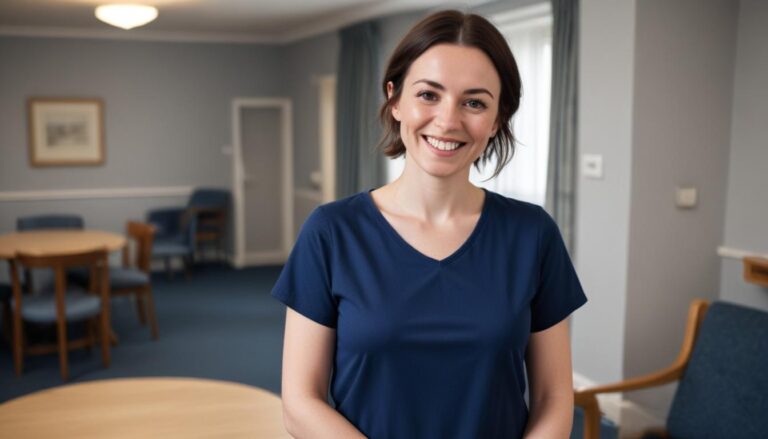
Summary
- Life Stages Overview: Human development is divided into distinct life stages: infancy, childhood, adolescence, adulthood, and older adulthood, each characterised by unique social, emotional, cognitive, and physical changes.
- Infancy to Early Childhood: In infancy, attachment forms the basis for future relationships, while early childhood sees the emergence of play and friendships, along with significant language and motor skill development.
- Adolescence to Early Adulthood: Adolescents grapple with identity and peer influence, experiencing intense emotions. Early adulthood focuses on forming intimate relationships and making pivotal life choices, with cognitive abilities reaching their peak.
- Middle to Older Adulthood: Middle adulthood involves balancing family roles and work, while older adulthood may bring a decline in mobility but often leads to greater wisdom and community involvement. Recognising these developments aids health and social care professionals in providing effective support.
This guide will help you answer 1.2. Describe social, emotional, cognitive and physical developments within each life stage.
Understanding human development is essential for anyone in health and social care. It allows us to provide appropriate support and services. In this guide, we’ll explore the key developments at each life stage: infancy, childhood, adolescence, adulthood, and older adulthood.
Infancy (0-2 years)
Social Development
- Attachment: Infants form bonds with caregivers. This secure attachment is essential for future social relationships.
- Social Smiles: By around 2 months, babies start to smile and coo, responding to people around them.
Emotional Development
- Basic Emotions: Infants express primary emotions like joy, anger, and fear.
- Emotional Regulation: They rely on caregivers to soothe and regulate their emotions.
Cognitive Development
- Sensory Exploration: Infants learn about their world through their senses—touch, taste, smell.
- Object Permanence: By 8-12 months, they begin to understand that objects exist even when not seen.
Physical Development
- Motor Skills: Rapid growth occurs. Milestones include rolling, crawling, standing, and walking.
- Reflexes: Early reflexes such as sucking and grasping are prevalent.
Early Childhood (3-8 years)
Social Development
- Play: Children engage in parallel play, eventually shifting to cooperative play.
- Friendships: They begin to form simple friendships based on shared activities.
Emotional Development
- Self-awareness: They start to understand their own feelings and those of others.
- Empathy: Developing capacity to show empathy towards peers.
Cognitive Development
- Language Skills: Vocabulary expands rapidly. Children start forming complex sentences.
- Imagination: Play includes imaginary scenarios, aiding cognitive growth.
Physical Development
- Gross Motor Skills: Improvements in balance and coordination. Activities include running and jumping.
- Fine Motor Skills: Abilities such as drawing and using utensils develop.
Middle Childhood (9-11 years)
Social Development
- Peer Relationships: Children place more emphasis on friendships, often based on shared interests.
- Team Play: Involvement in team sports and group activities increases.
Emotional Development
- Self-concept: A stronger sense of identity begins to form.
- Emotional Control: Better ability to manage emotions and resolve conflicts.
Cognitive Development
- Logical Thinking: Improved ability to reason and understand complex ideas.
- Problem-solving: Skills continue to mature, with an increasing ability to think strategically.
Physical Development
- Growth Spurts: Noticeable physical changes as they transition towards puberty.
- Strength and Stamina: Increases in physical capacity and endurance.
Adolescence (12-18 years)
Social Development
- Identity Formation: Adolescents explore personal identity and social roles.
- Peer Influence: Significant influence from peer groups, sometimes leading to risk-taking behaviour.
Emotional Development
- Emotional Intensity: Strong emotions due to hormonal changes.
- Self-esteem: Can fluctuate; supportive environments help stability.
Cognitive Development
- Abstract Thinking: Ability to think more abstractly and consider hypothetical situations.
- Moral Reasoning: Greater focus on ethical issues and justice.
Physical Development
- Puberty: Marked by hormonal changes, growth spurts, and secondary sexual characteristics.
- Coordination: Physical coordination often improves alongside strength.
Early Adulthood (19-40 years)
Social Development
- Intimate Relationships: Formation of deeper, more meaningful relationships, including partnerships.
- Career Focus: Establishing career paths and professional networks.
Emotional Development
- Emotional Stability: Greater emotional regulation and maturity.
- Life Choices: Choices about lifestyle, relationships, and careers are pivotal.
Cognitive Development
- Critical Thinking: Enhanced ability to analyse situations and solve complex problems.
- Knowledge Application: Applying knowledge gained through education and experience.
Physical Development
- Peak Performance: Physical abilities often peak, with high levels of energy and endurance.
- Health Consciousness: Awareness of health and fitness usually increases.
Middle Adulthood (41-65 years)
Social Development
- Family Roles: Often involves parenting or caring for older relatives, creating complex family dynamics.
- Work-Life Balance: Adjustments may be needed to balance personal and professional life.
Emotional Development
- Self-Reflection: Increased introspection can lead to personal growth and change.
- Coping Strategies: Enhanced ability to cope with stress and challenges.
Cognitive Development
- Continued Learning: Lifelong learning and skill acquisition remain important.
- Experience Utilisation: Using accumulated experience to solve problems efficiently.
Physical Development
- Aging Signs: Noticeable changes like decreased metabolism and flexibility.
- Health Maintenance: Focus on maintaining health through regular check-ups and exercise.
Older Adulthood (65+ years)
Social Development
- Social Networks: May shrink because of retirement and lifestyle changes, but maintaining social interaction is key.
- Community Involvement: Often engage in volunteer work or community activities.
Emotional Development
- Contentment: Many find greater contentment through reflection and acceptance of life achievements.
- Dealing with Loss: Coping with the loss of friends and loved ones can be a significant emotional challenge.
Cognitive Development
- Memory Changes: Some decline in memory and mental agility, although active engagement can mitigate effects.
- Wisdom and Insight: Often characterised by greater wisdom and insight into life.
Physical Development
- Mobility Decline: Potential decrease in mobility and physical strength.
- Health Conditions: Increased prevalence of chronic health issues; monitoring and management are essential.
In summary, each life stage encompasses a range of social, emotional, cognitive, and physical changes. Recognising these helps in providing the best care and support. Different individuals will experience these developments at varying rates, influenced by genetic, environmental, and lifestyle factors. It’s essential to consider these variations when understanding human growth and development.
Subscribe to Newsletter
Get the latest news and updates from Care Learning and be first to know about our free courses when they launch.




